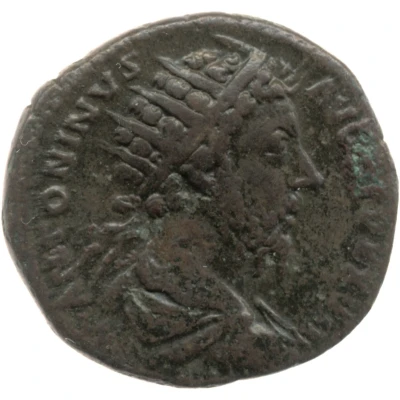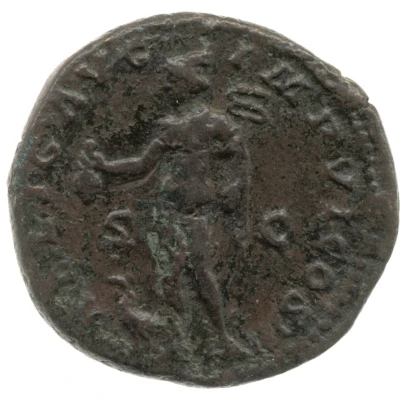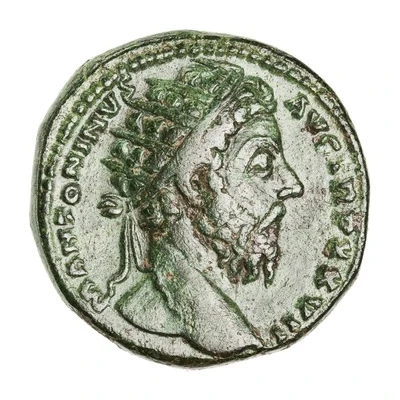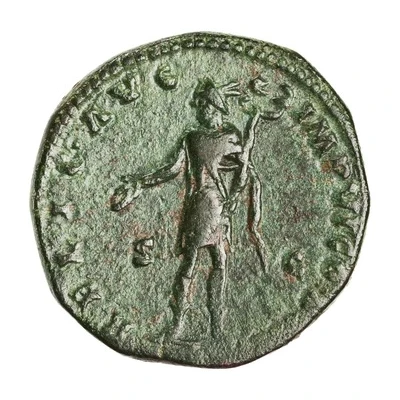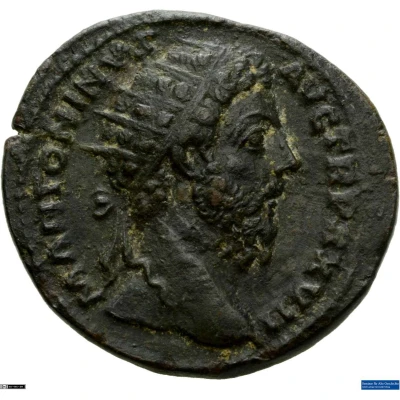
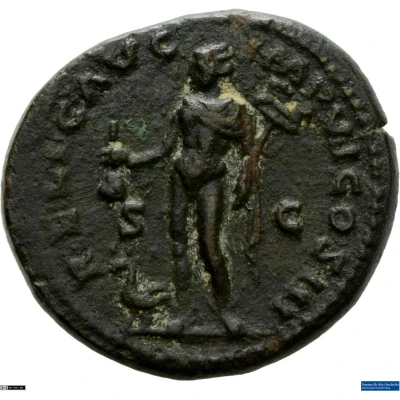

© Münzsammlung des Seminars für Alte Geschichte, Albert-Ludwigs-Universität Freiburg (CC BY-NC-SA 3.0 DE)
Dupondius - Marcus Aurelius RELIG AVG IMP VI COS III S C; Mercury
| Bronze | 12.4 g | 25 mm |
| Issuer | Rome › Roman Empire (27 BC - 395 AD) |
|---|---|
| Emperor | Marcus Aurelius (Marcus Aurelius Antoninus) (161-180) |
| Type | Standard circulation coin |
| Years | 172-173 |
| Value | 1 Dupondius = ⅛ Denarius |
| Currency | Denarius, Reform of Augustus (27 BC – AD 215) |
| Composition | Bronze |
| Weight | 12.4 g |
| Diameter | 25 mm |
| Shape | Round (irregular) |
| Technique | Hammered |
| Demonetized | Yes |
| Updated | 2024-10-06 |
| Numista | N#263777 |
|---|---|
| Rarity index | 100% |
Reverse
Mercury, wearing petasus and short robe, standing left, holding purse in right hand and caduceus in left hand; at feet, a cock, standing left.
Script: Latin
Lettering: RELIG AVG IMP VI COS III S C
Translation:
Religio Augusti. Imperator Sextum, Consul Tertium. Senatus Consultum.
The religion of the emperor (Augustus). Supreme commander (Imperator) for the sixth time, consul for the third time. Decree of the senate.
Comment
Mass varies: 11.68–13.1 g;Example of this type:
Münzsammlung des Seminars für Alte Geschichte, Albert-Ludwigs-Universität Freiburg
Source:
Online Coins of the Roman Empire (OCRE)
Interesting fact
The Dupondius coin featuring Marcus Aurelius, minted between 172-173 AD, is interesting because it showcases the Roman Empire's use of currency as a tool for propaganda. The coin's reverse side features an image of Mercury, the Roman messenger god, which was a symbol of the emperor's role as a messenger of the gods and a protector of the empire. Additionally, the coin's inscription highlights Marcus Aurelius' titles, including "RELIG AVG IMP VI COS III S C," which translates to "Religious Emperor, Imperator, Consul for the third time, Senator," emphasizing his authority and religious leadership. This coin is a prime example of how the Roman Empire used currency to promote their leaders and their ideologies.
